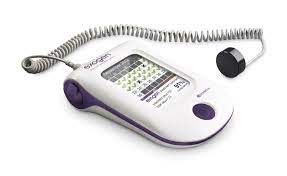Bioventus Agrees to Pay $3.6 Million to Settle False Claims Act Violations

The False Claims Act is a powerful tool for government prosecutors to use against healthcare providers, and drug and device companies. The Trump Administration used the False Claims Act to attack the opioid industry and rein in the industry.
The Biden Department of Justice is likely to ramp up use of the False Claims Act. From an enforcement standpoint, the current situation creates a “perfect storm” for government prosecutors increase FCA recoveries and uncover fraud.
First, and most significantly, federal government spending under the pandemic has grown, particularly with respect to the Paycheck Protection Program (“PPP”). Covid-relief fraud is rampant and DOJ prosecutors are sure to respond to this with increased FCA prosecutions.
Second, the Biden Administration is planning to increase healthcare spending under the Affordable Care Act, and will target healthcare fraud as an important priority under the FCA.
Third, FCA enforcement actions against the defense industry has been a lower priority over the past ten years, and the Biden Administration is likely to focus again on the defense industry.

As an example of healthcare fraud prosecutions, Bioventus, a North Carolina biotech company that makes joint pain treatments agreed to a settlement with the U.S. Attorney’s Office for the Middle District of North Carolina (Raleigh, NC), and agreed to pay $3.6 million to resolve allegations it violated the FCA.
Bioventus self-disclosed the conduct in 2018 to the HHS Office of Inspector General. Over a six-year period, Bioventus forged physician notes and certificates of medical necessity to secure Medicare reimbursement payments. The settlement underscores the importance of internal compliance controls to ensure compliance with Medicare requirements. Many of Bioventus’ claims were not eligible for reimbursement.
Bioventus’ disclosure related to its Exogen device, an ultrasonic bone growth stimulator. Bioventus discovered that sales representatives were completing Section B of the Certificate of Medical Necessity for Exogen devices in violation of the requirement that Section B is completed by the treating physician rather than the treating physician of the physician’s office.
Bioventus conduct a review of Medicare claims and reported the results of the review to the HHS-OIG, which later referred the matter to federal prosecutors. Bioventus cooperated with the government’s investigation. The physician certification is required under Medicare rules and regulations to ensure that Medicare funds are used for medically necessary purposes.

Aside from the fact that Section B of a claim form has to be completed by the physician, DOJ noted that many of the request, even if completed properly, would not be eligible for reimbursement.
Under the HHS-OIG rules, a healthcare provider, drug or device company can submit a self-disclosure pursuant to a Self-Disclosure Protocol, which offers an incentive to reduce otherwise applicable penalties.
In February 2021, Bioventus filed for an initial public offering. The SEC filing included a disclosure of this matter.














